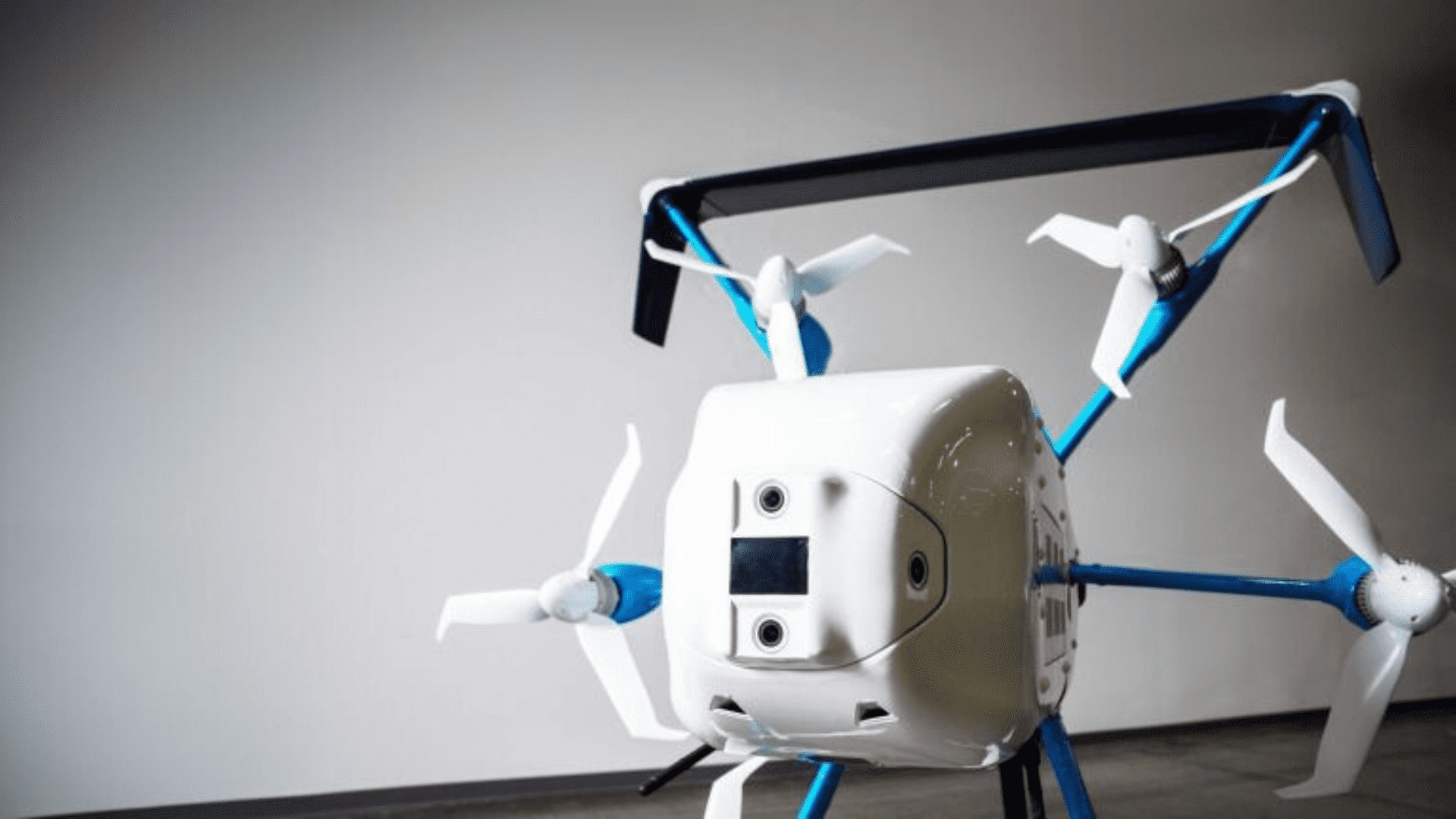No matter where you live, laundry is a necessity and probably a big part of your routine. In fact, according to a new study by Nielsen, globally 67 percent of people said they do laundry at least twice per week, and another 31 percent said they do laundry every day. But how you do your laundry varies greatly depending on where you live in the world.
India and Pakistan
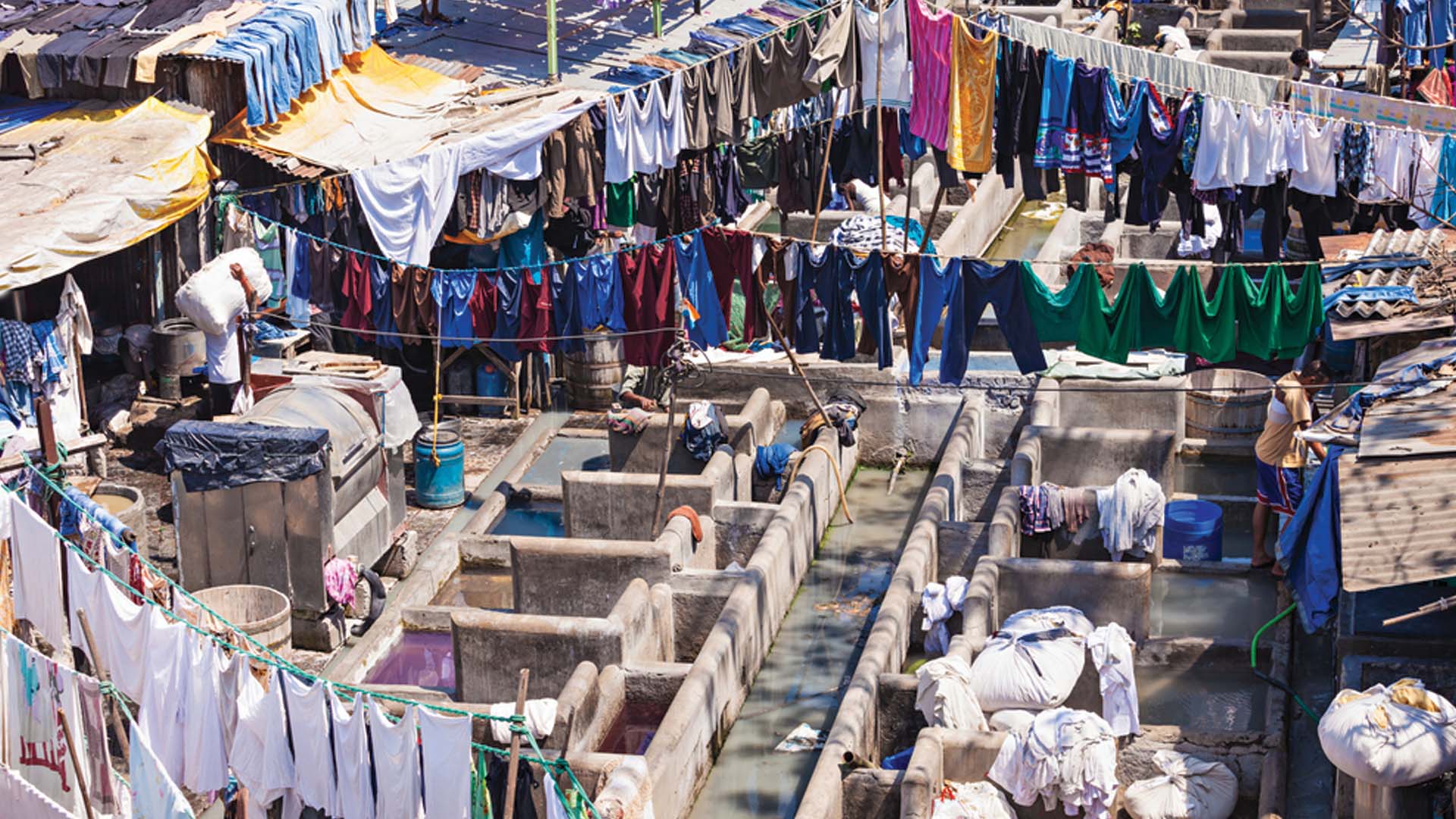
Across India and Pakistan, there is a specific caste group called the Dhobis that specializes in handwashing clothes for schools, hotels, hospitals, and individuals. Although they are starting to lose business due to the popularity of the washing machine, the group uses local water sources to clean clothes by hand. They dry the clothes by beating them against a hard surface like a rock and then leave them on a clothesline to fully dry.
In Mumbai, India, over 8,000 dhobis, or washermen, still gather for 18 to 20 hours each day at Dhobi Ghat, known as the biggest open-air laundry in the world. The Dhobi Ghat was built in 1890. Today, the site is a popular tourist destination, but locals consider it as a filth-ridden place riddled with mosquitoes and illegal construction.
Japan
In Japan, you will likely have trouble finding a washing machine that uses warm water. They use cold water instead, which is believed to retain the color and quality of the fabric for a long time. It is also much better for the environment!
Guatemala
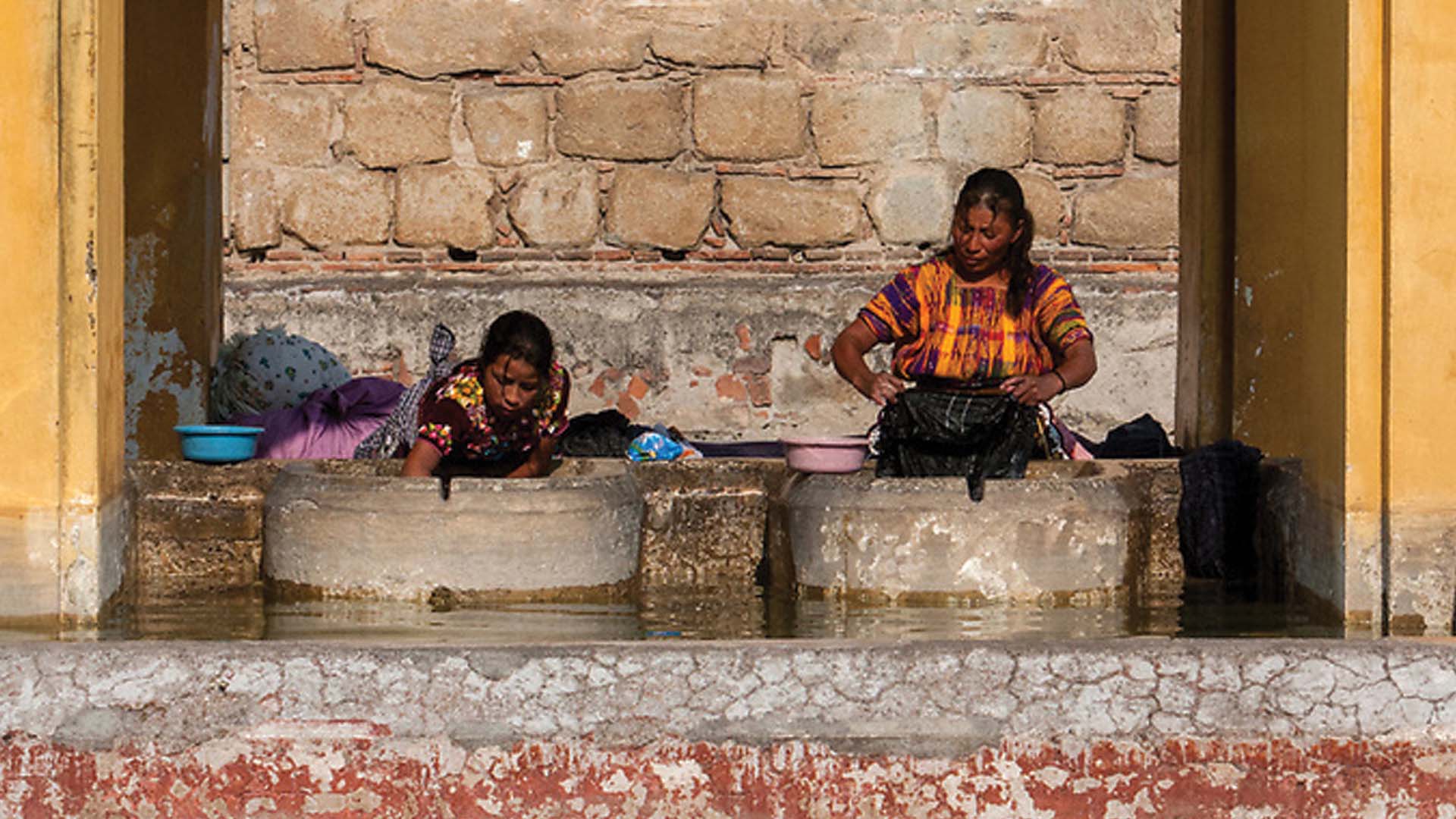
Photo Credit: Cecil Images
Even though some households are beginning to own washing machines, most traditional houses in Guatemala contain a pila. A pila is a sink with three sections: a side for washing laundry, another side for dishes, and the middle section for usable, clean water. Pilas date back to the beginning of Guatemala in the Mayan Civilization.
In addition to the private pilas in the home, most Guatemalan towns still have public pilas, or washbasins. These are located in the town squares and feature multiple tubs. Traditionally, women would gather here and do their family’s laundry. While the public pilas are in use in some towns, many of them are just kept as a relic from the past.
Morocco
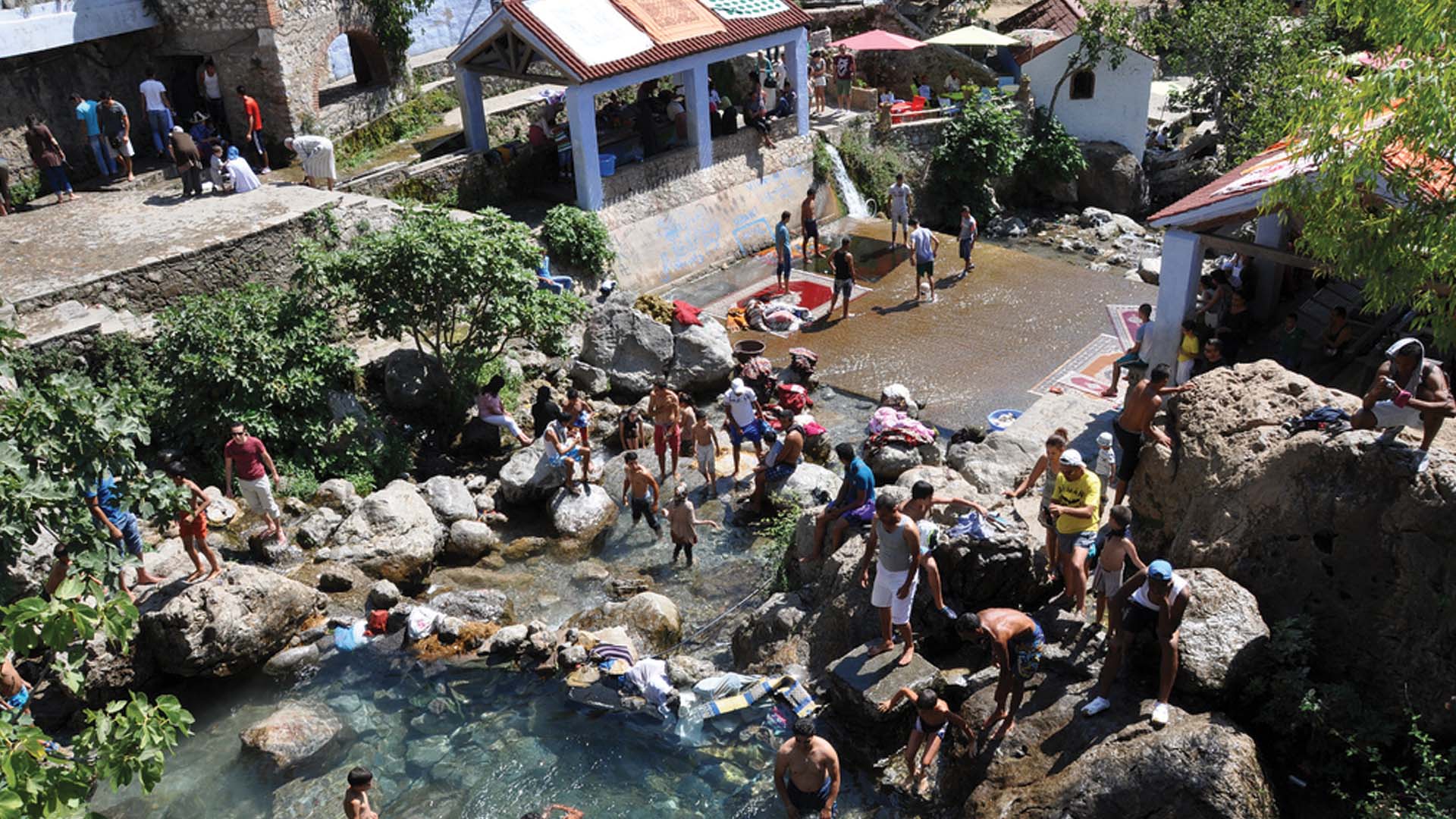
Photo Credit: Flickr
In many towns in Morocco, locals travel to waterfalls on Sundays to do their laundry. For example, in Chefchaouen, residents travel to the Ras el Maa waterfall. They wash their clothes by hand and then leave them outside to dry. The waterfall has been a traditional meeting point for locals to chat and to cool off from the hot sun.
China
In China, they never wash their socks and underwear together in the same wash. And, if you take your underwear to get washed in a laundromat, workers will reject your laundry. Underwear is washed by hand to prevent contamination from other garments.
Additionally, while 94 percent of China’s population owns a washing machine, only 1 percent owns a dryer. Instead, they can hang their clothes on the balcony or outside of their window. Hangers are installed on the ceiling of many balconies so people can hang their clothes.
Sweden
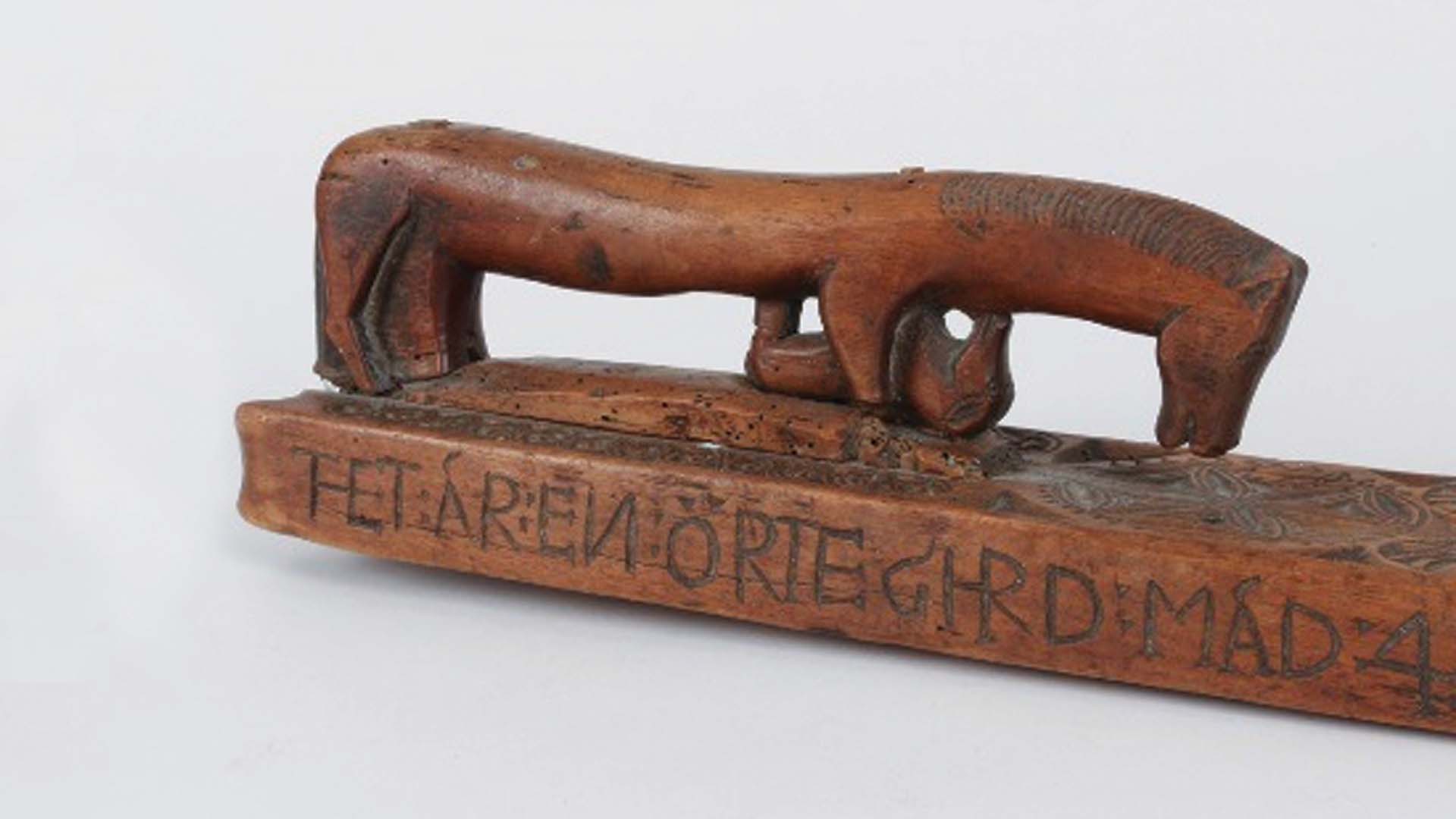
Photo Credit: Mangleboard.com
In Sweden, people use a mangle iron to flatten sheets and tablecloths. A mangle iron consists of two rollers in a frame that is connected by cogs and is powered by a hand crank or electricity. It removes water from clothes faster than a dryer and helps keep items clean longer by preventing the collection of dust. Additionally, about 40 percent of Sweden’s population lives in an apartment building, and each building has a common laundry room which saves water, electricity, and the number of machines.
Space
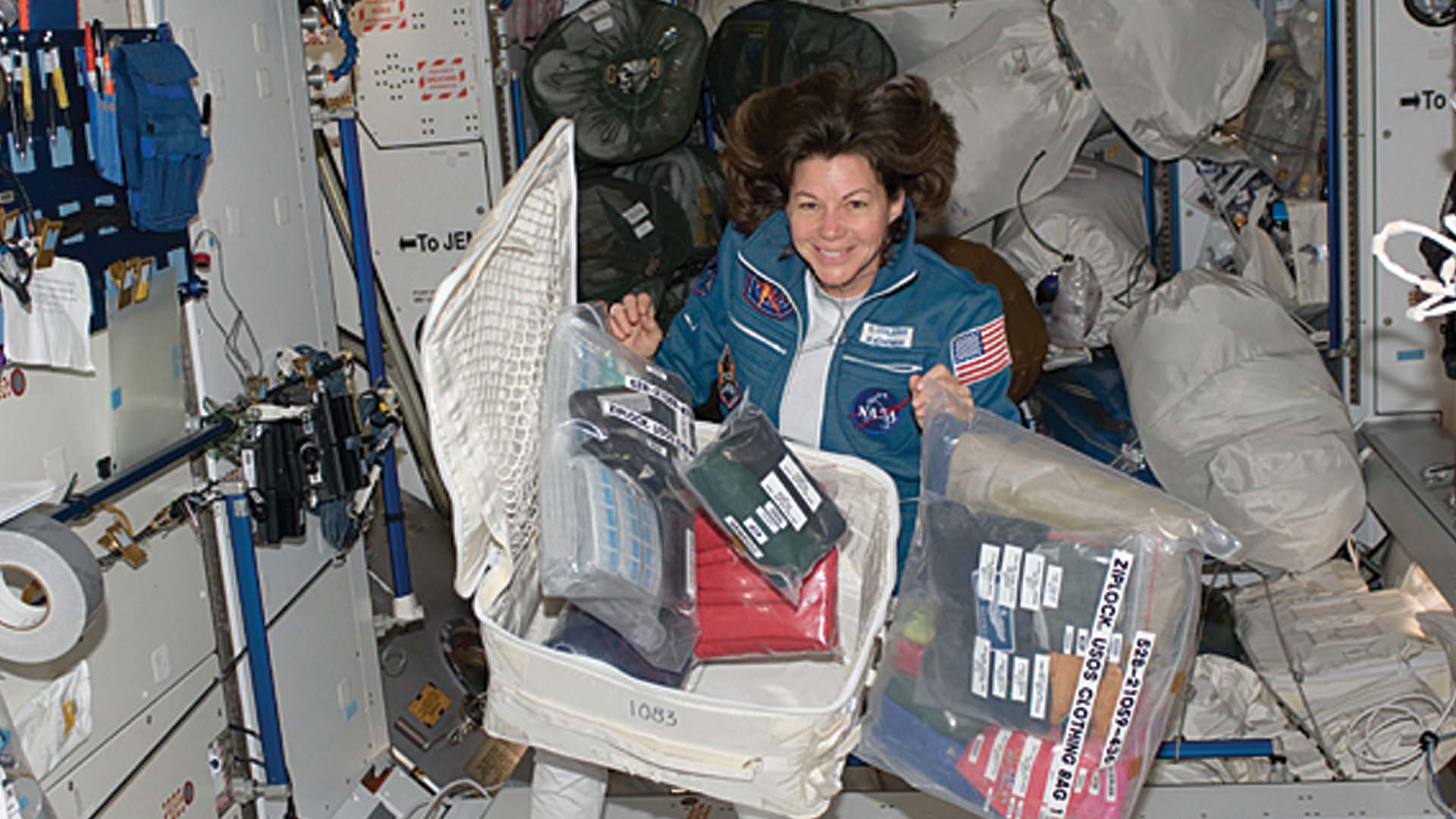
Ever wondered how astronauts do their laundry? Short answer—they don’t. While astronauts are in the international space station (ISS), they wait until there are too many dirty clothes to bear and put them in an old spaceship that is launched towards the earth. The spaceship burns up in the earth’s atmosphere. On average, one astronaut wears and then incinerates 150 pounds of clothing each year!
On the bright side, clothes don’t get as dirty in space as they do on earth. Astronauts’ clothes don’t pick up dirt from outside their homes, meaning their clothes are cleaner. The lack of gravity also means that everything is pretty much weightless, so astronauts don’t use as much energy moving around as they would on earth. Additionally, the temperature on the ISS is carefully controlled so the astronauts don’t sweat too much.
Science of Laundry Around The World
Not only does the way in which you do your laundry vary depending on where you live, but the water and temperature conditions do as well. This presents a challenge to detergent companies because they need to ensure that their products work well with all washing machines, water qualities and mineral levels, and temperature. To solve this problem, detergent company Tide installed washing machines from all around the world into their engineering headquarters. These machines are hooked up to a massive water system that can mimic the different water and temperature conditions that can be found. This ensures that their products work the exact same, whether you find yourself in the United States, Morocco, Japan, or anywhere.
Discover more about innovations in sustainable laundry for free on Tomorrow’s World Today’s episode of “Power of the PODS” on TWTshow.com!




